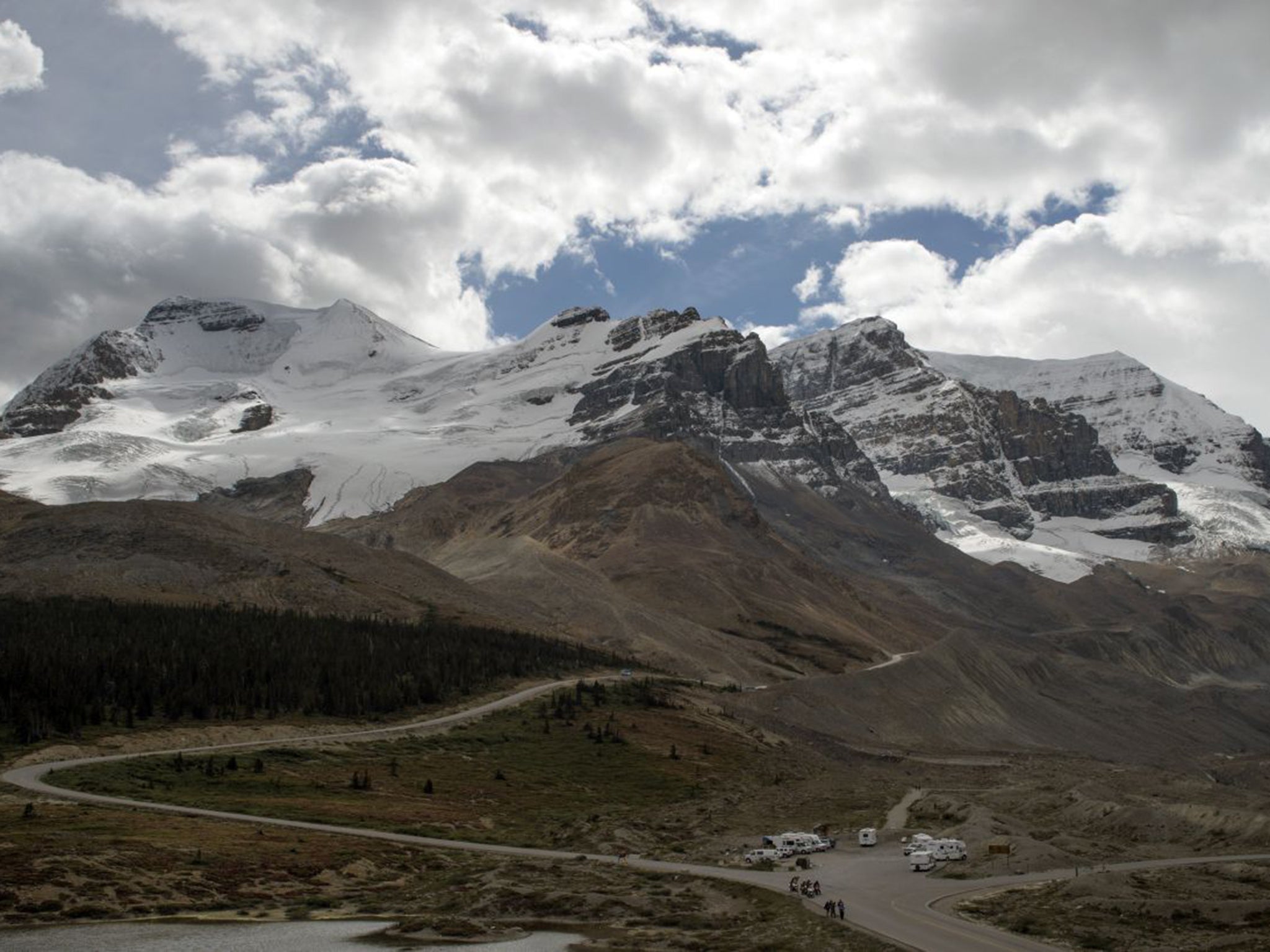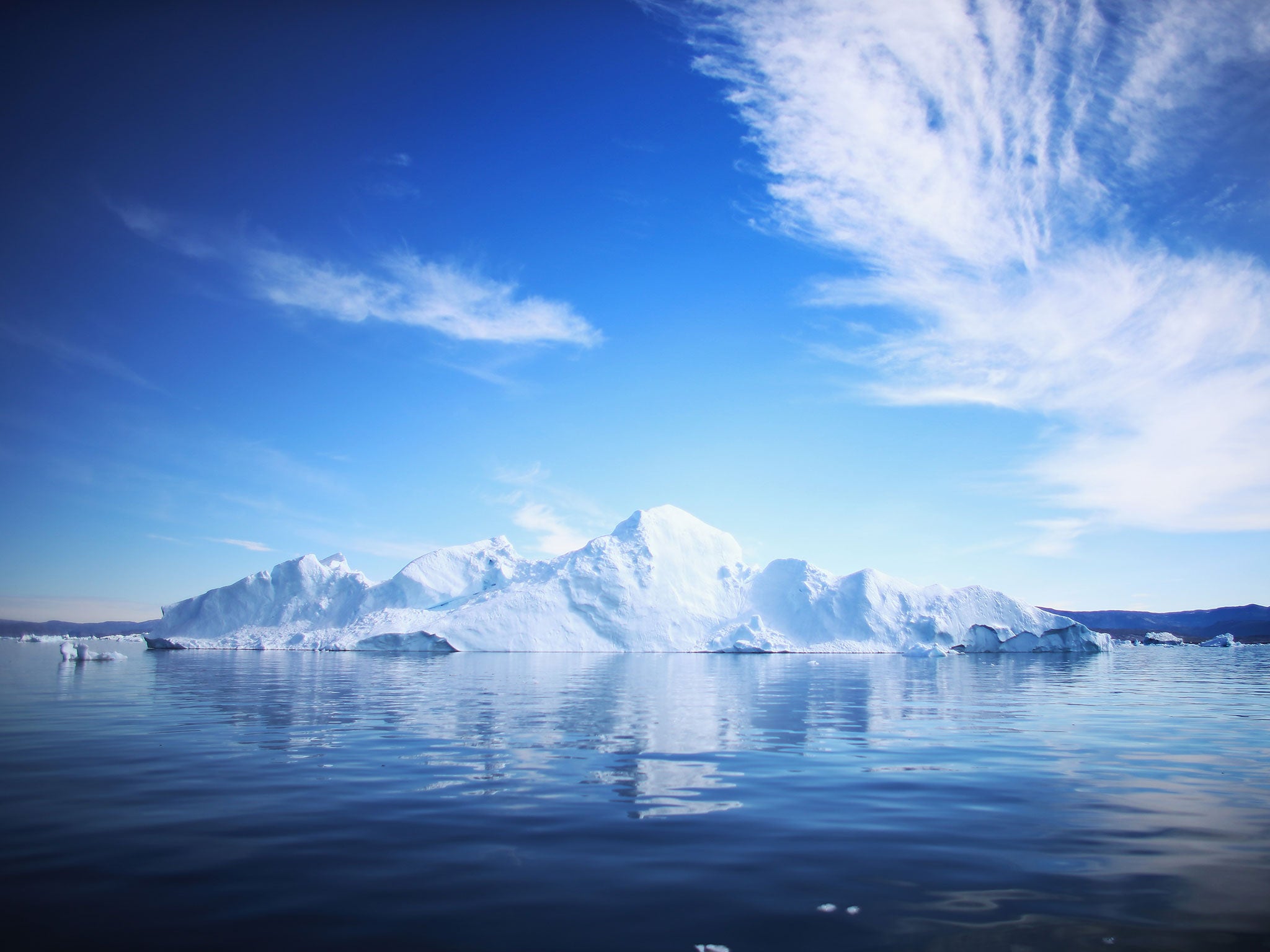Many of the vast glaciers in western Canada could almost disappear by end of the century
Scientists estimated that up to 70 per cent of the volume of the glaciers in the wetter coastal regions of western Canada will have gone by 2100

Your support helps us to tell the story
From reproductive rights to climate change to Big Tech, The Independent is on the ground when the story is developing. Whether it's investigating the financials of Elon Musk's pro-Trump PAC or producing our latest documentary, 'The A Word', which shines a light on the American women fighting for reproductive rights, we know how important it is to parse out the facts from the messaging.
At such a critical moment in US history, we need reporters on the ground. Your donation allows us to keep sending journalists to speak to both sides of the story.
The Independent is trusted by Americans across the entire political spectrum. And unlike many other quality news outlets, we choose not to lock Americans out of our reporting and analysis with paywalls. We believe quality journalism should be available to everyone, paid for by those who can afford it.
Your support makes all the difference.Many of the vast glaciers of western Canada could have almost disappeared by the end of the century according to one of the most detailed studies of how fast mountain glaciers are melting.
Scientists estimated that up to 70 per cent of the volume of the glaciers in the wetter coastal regions of western Canada, and as much as 90 per cent of the volume of drier inland glaciers, will have gone by 2100 because of the forecasted warming of the region.
The researchers said that the flow of meltwater from the glaciers into the oceans will peak within the next 20 years as the rate of melting increases rapidly over the next couple of decades, even if countries agree on a climate deal in Paris this December.
Globally, the melting of mountain glaciers contributes about 0.7mm of average sea level rise per year. This is similar to the combined addition from the ice sheets of Greenland and Antarctica.
By the end of the century, the distinctive mountain glaciers of the Canadian Rockies and Pacific North West would have largely disappeared except for a few residual pockets of ice, said Professor Garry Clarke of the University of British Columbia.
“Most of the ice holdouts at the end of the century will be in the northwest corner of the province [of British Columbia]. Soon our mountains could look like those of Colorado or California and you don’t see much ice in those landscapes,” Professor Clarke said.
Much of the melting so far cannot be easily seen or measured as it involves thinning of the glacier at a rate of about a metre a year, rather than an overall loss of surface area, he said.
“Most glaciers are only 100 to 200 metres thick. They’re losing volume but this loss we’re seeing right now is a bit hidden,” he explained.

Mountain glaciers around the world, from the Andes of South America to the Himalayas, are in retreat. In Canada’s British Columbia and Alberta alone there are 17,000 glaciers and they serve are an important source of hydroelectric power, as well as serving as a vital supply of water.
Professor Clarke said that these mountain glaciers are also important in regulating the temperature of many freshwater habitats by supplying cool water to rivers and streams at the end of summer.
“These glaciers act as a thermostat for freshwater ecosystems. Once the glaciers are gone, the streams will be a lot warmer and this will hugely change freshwater habitats. We could see some unpleasant surprises in terms of salmon productivity,” he said.
Overall there are about 170,000 glaciers in the world and although most are melting, some are disappearing faster than others, making it difficult for scientists to make global assessments of their combined future contribution to sea-level rise.
The study of western Canadian glaciers, published in the journal Nature Geoscience, is one of the most detailed assessments so far and takes into account the complex factors affecting the rate at which the ice flows down a mountain.
Many scientists believe that the loss of mountain glaciers will accelerate as a result of climate feedbacks that make mountain regions even warmer as the permanent ice cover vanishes.
Join our commenting forum
Join thought-provoking conversations, follow other Independent readers and see their replies
Comments